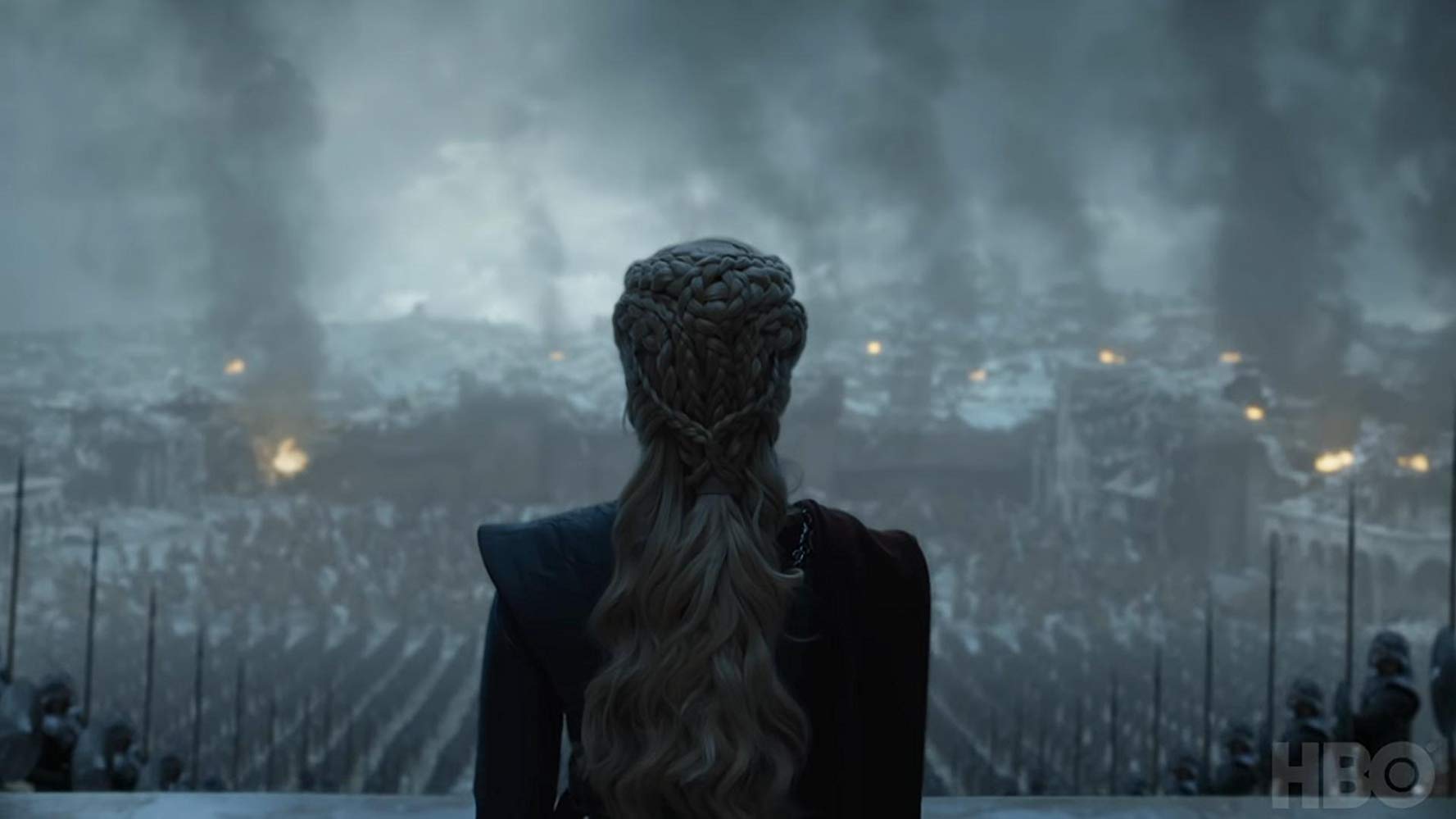**This post contains spoilers for the series finale of HBO’s Game of Thrones.**
This past Sunday, we listened to words from the Book of Revelation:
“Then I, John, saw a new heaven and a new earth. … I also saw the holy city, a new Jerusalem, coming down out of heaven from God”
This hope of a new world, a new Jerusalem, is part of the promise of Christianity. In the new world, as John of Patmos says, God “will wipe every tear from their eyes, and there shall be no more death or mourning, wailing or pain, for the old order has passed away.” The new world, in short, will be good. In every possible way, it will be full of goodness.
This sentiment was echoed, to my surprise, that same evening in the finale of Game of Thrones. In this last episode, Daenerys Targaryen stands on the precipice of reclaiming her ‘birthright’, the Iron Throne. However, to get to this point, she has decided to effectively firebomb the entire capital city (with the help of her dragon), despite the surrender of the people.
Jon Snow, her lover and sorta-military-commander, confronts Daenerys about her use of violence. He asks her to look to forgive those who wronged her: “You can forgive all of them, make them see they made a mistake.” Daenerys is unwilling, as she sees mercy as a weakness. Jon, however, is adamant: “The world we need is a world of mercy. It has to be.”
As her former adviser Tyrion points out to Jon, Daenerys has always been showered with praise for her use of force against the evils of the world. “Everywhere she goes, evil men die, and we cheer her for it. And she grows more powerful and more sure that she is good and right. She believes her destiny is to build a better world for everyone.”
Daenerys insists that her destruction of the capital was for the liberation of the people. For a new world, without the pain of this one. She maintains this vision even when her lover confronts her. She believes those who disagree with her are mistaken because they are caught up in their old view: “The world we need won’t be built by men loyal to the world we have.” Daenerys, unlike them, knows what is good.
But how many of us think that we know the good? While the fantasy setting is far from our daily lives, how many times have I excused and rationalized my own actions, because I liked the story I told myself? How many times have I used the end that I want to justify the means to get there?
While Tyrion converses with Jon, he reflects on Daenerys’s “better world.” He asks Jon, “If you believed that, if you truly believed it, wouldn’t you kill whomever stood between you and paradise?” The New Jerusalem sounds pretty wonderful. Now, most of us will not look to literally kill those who disagree with us. But how often do we shut out opinions that we think compete with our view of the new world? How often do we do violence against voices different that the ones we are used to hearing?
Jon, too, chooses to ignore dissent rather than compromise his view of the good. He chooses Daenerys’s death for the sake of his own vision of the better world. He kills her (in an overdone trope) after he decides that she will not change her mind. The story presents this as the necessary evil, for the sake of Westeros. But will there be a New Westeros? The outlook does not look great. Old grievances have not been set aside. Bitter wounds have not been reconciled. The peace at the end of the series looks tentative, at best. Again, the narrow and personal vision of the good prevents any lasting transformations.
Many of us would like the Second Coming to happen now. I want that beautiful New Jerusalem, and often think it is up to me personally to ensure that it happens. I can think it my duty to change the minds of (or, if that fails, to get rid of) those too loyal to the old way of life. Like both Daenerys and Jon, I can justify my actions for the sake of something I hope for. We fight against those we disagree with, mistaking something different for something evil. But when we return evil for evil, there is no better world being built. Daenerys killed the slavers; Jon killed the murderous tyrant. But what was left does not look much better than what came before: there are new slaveries, new tyrannies, new violence.
God did not ask our permission for the Resurrection, and will not bring the Second Coming according to our blueprints. Which is good, because such a world is beyond our vision. We work, we forgive, we love, but we cannot be the ones to bring about the new order of everlasting life. As Daenerys says, “it’s not easy to see something that’s never been seen before.” But were she (and Jon) insisted on her view, we must accept the inadequacy of our sight. God is the one with the vision of the New Jerusalem. Our task then is not to try to force the old order away but to look upon the world as Christ did. As Bishop Ken Untener prayed, “We may never see the end results, but that is the difference between the master builder and the worker. We are workers, not master builders; ministers, not messiahs.”

